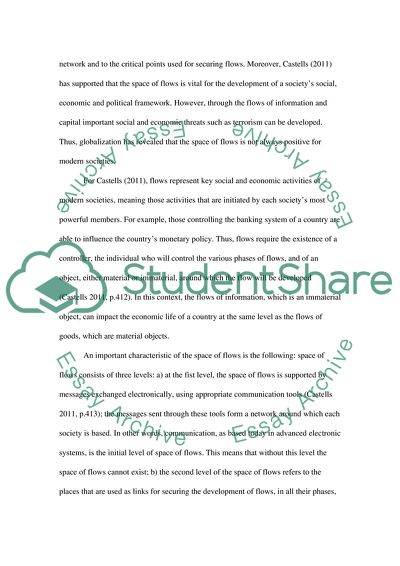Cite this document
(Space of Flows - Castells's Concept Assignment Example | Topics and Well Written Essays - 2250 words, n.d.)
Space of Flows - Castells's Concept Assignment Example | Topics and Well Written Essays - 2250 words. Retrieved from https://studentshare.org/social-science/1823225-global-media-global-culture
Space of Flows - Castells's Concept Assignment Example | Topics and Well Written Essays - 2250 words. Retrieved from https://studentshare.org/social-science/1823225-global-media-global-culture
(Space of Flows - Castells'S Concept Assignment Example | Topics and Well Written Essays - 2250 Words)
Space of Flows - Castells'S Concept Assignment Example | Topics and Well Written Essays - 2250 Words. https://studentshare.org/social-science/1823225-global-media-global-culture.
Space of Flows - Castells'S Concept Assignment Example | Topics and Well Written Essays - 2250 Words. https://studentshare.org/social-science/1823225-global-media-global-culture.
“Space of Flows - Castells'S Concept Assignment Example | Topics and Well Written Essays - 2250 Words”, n.d. https://studentshare.org/social-science/1823225-global-media-global-culture.


